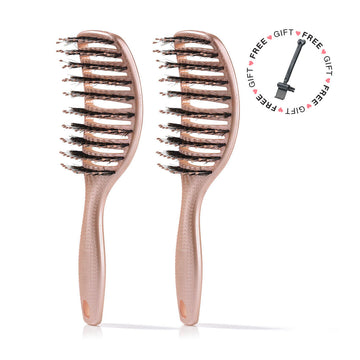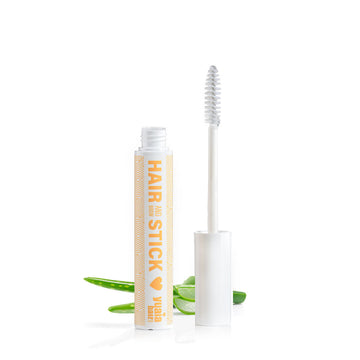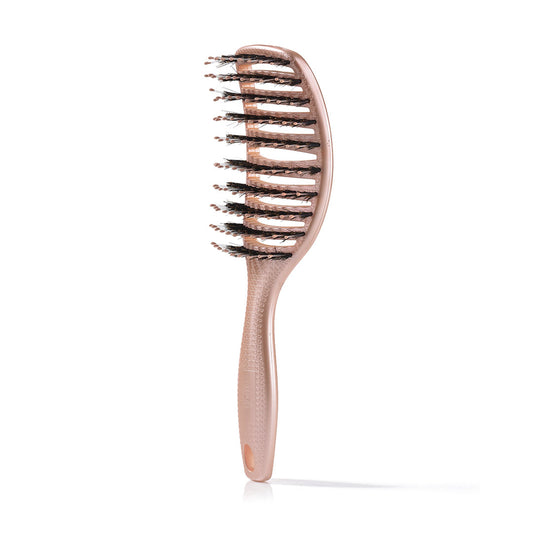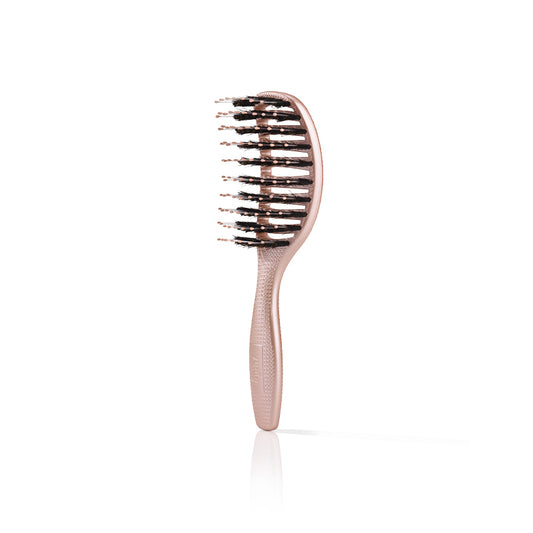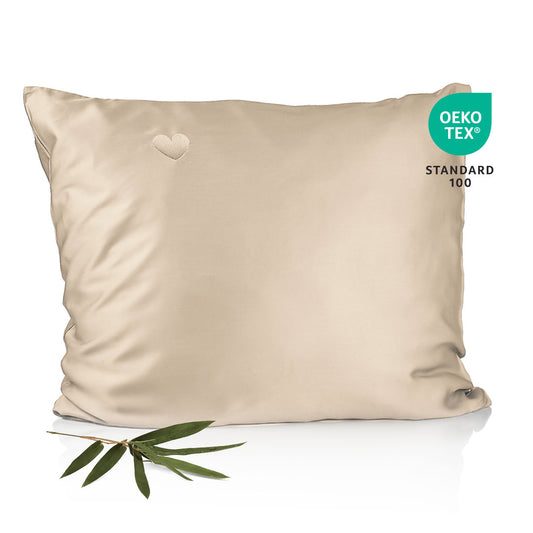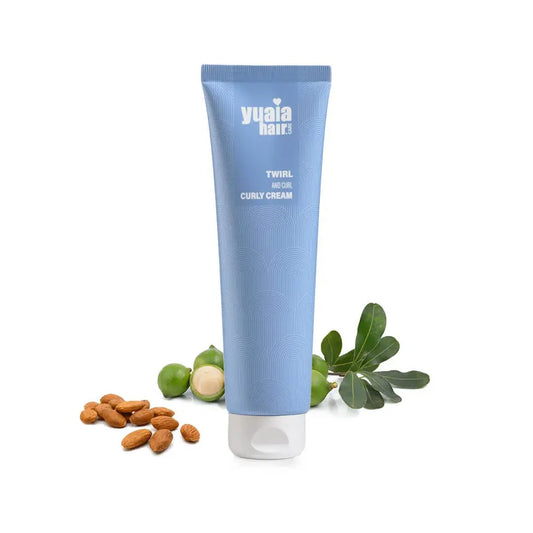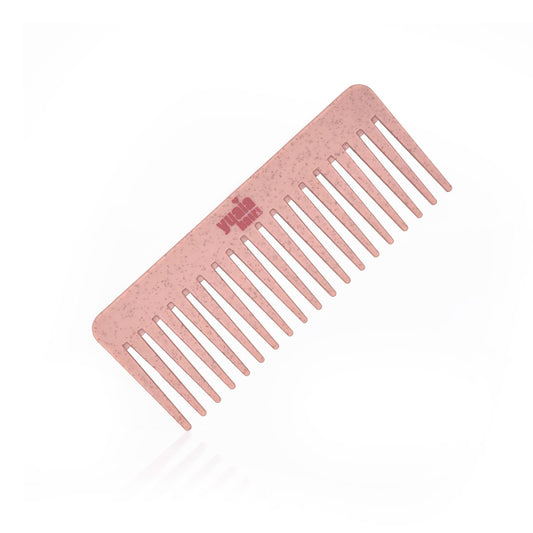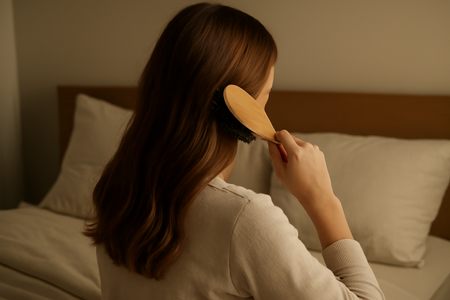
Should you brush your hair before bed? Discover the benefits and best practices

by Nanna Bundgaard | 30. July 2025 | Reading time: 5 minutes
Read more about the authorIn recent years, the concept of nighttime hair care has gained significant attention, as more people recognize the benefits of incorporating specific routines to maintain healthy hair. One of the most common issues faced overnight is hair tangling, which can lead to breakage and split ends. Additionally, an imbalance of natural oils can cause dryness or excessive oiliness, affecting overall hair health.
Given these challenges, a question arises: Should you brush your hair before bed to combat these issues? Brushing your hair at night is a practice recommended by many hair care experts as it offers several benefits that contribute to healthier hair.
What are the health benefits of brushing your hair before bed?
Brushing your hair before bed can significantly improve your hair's health and appearance. Here are some of the key benefits:
- Improves blood circulation: Brushing stimulates the scalp, enhancing blood flow, which can support hair growth and overall scalp health.
- Distributes natural oils: By spreading the natural oils from your scalp down the hair shaft, brushing helps keep your hair moisturized and reduces dryness.
- Detangles hair: Removing knots and tangles before sleeping minimizes breakage and helps maintain your hair's strength.
- Removes dust and residue: Brushing helps eliminate dust, sweat, and product residue, leaving your scalp feeling fresher.
- Calming effect: The act of brushing can be soothing and may relieve stress, contributing to better sleep quality.
How to properly brush your hair before bed
To maximize the benefits of nighttime brushing, it's important to use the right technique. Start by gently brushing from the ends of your hair, gradually working your way up to the roots. This approach helps prevent breakage and reduces stress on your hair.
Using a boar bristle brush is highly recommended for effective oil distribution and detangling. Our Curvy Brush is an excellent choice for gentle and efficient brushing. For most hair types, brushing twice daily—morning and night—is sufficient. However, those with curly or textured hair should brush less frequently to avoid frizz and maintain their natural texture.
How to properly brush your hair before bed
Adopting the right technique for brushing your hair before bed can make a significant difference in maintaining its health and appearance. Begin by gently detangling your hair from the ends, gradually working your way up towards the roots. This method minimizes breakage and reduces stress on the hair.
For optimal results, consider using a boar bristle brush, which is effective in distributing natural oils and detangling. Our Curvy Brush is designed to offer gentle and efficient brushing, making it an excellent choice for your nighttime routine. Typically, brushing twice daily—morning and night—is recommended for most hair types. However, individuals with curly or textured hair should brush less frequently to maintain their natural texture and avoid frizz.
Nighttime hair protection: beyond brushing
While brushing is a beneficial step, it's important to pair it with additional protective measures to fully safeguard your hair overnight. Using a silk or satin pillowcase can significantly reduce friction, minimizing the risk of breakage and helping to maintain your hair's smoothness. Our bamboo pillowcase offers a soft, friction-free surface that supports hair health while you sleep.
Bamboo pillowcase
100% Lyocell Bamboo® – OEKO-TEX® certified – Hypoallergenic and temperature regulating€26,99 €53,50
Incorporating leave-in treatments or serums can further enhance your hair's condition. These products provide an extra layer of moisture and protection, allowing your hair to recover and rejuvenate overnight. For curly hair, the Twirl and Curl curly cream is a great option to define curls and maintain their shape while you rest.
Creating a holistic nighttime routine that includes gentle hair care practices ensures that your hair remains healthy and strong. Combining brushing with these protective steps can lead to noticeable improvements in your hair's texture and overall health.
Get a 10% discount code sent to you
Receive the best tips and tricks for your hair from Lotte and Nanna 🥰
Additional content and FAQs: Addressing common concerns and myths
Debunking the “100 brush strokes” myth
The long-standing myth that brushing your hair 100 times before bed will result in healthier hair is outdated and potentially harmful. Excessive brushing can lead to breakage and damage, especially for those with finer or more fragile hair. The focus should be on gentle brushing to detangle and distribute natural oils evenly, rather than adhering to a strict number of strokes.
FAQs: Tailoring hair brushing to different hair types
How often should curly hair be brushed?
Curly hair requires a more delicate approach to maintain its natural texture and prevent frizz. It's generally recommended to brush curly hair only on wash days when it's wet and coated with conditioner. This helps detangle without disrupting the curl pattern.
Can brushing before bed cause hair damage?
Brushing before bed can be beneficial, but it's important to use gentle techniques to avoid damage. Using a brush made with soft bristles, like our Curvy Brush, can help minimize stress on the hair and prevent breakage.
What tools are best for brushing different hair types?
The choice of brush or comb should depend on your hair type. For thick or curly hair, a wide-tooth comb is ideal for detangling without causing damage. For finer hair, a boar bristle brush is excellent for distributing natural oils and adding shine.
Incorporating brushing into a self-care routine
Brushing your hair before bed can be more than just a hair care step; it can also be a calming self-care ritual. This practice not only promotes relaxation but also contributes to overall wellness. Combining brushing with other self-care activities, such as meditation or skincare, can create a holistic routine that enhances both your hair health and personal well-being.
Get a 10% discount code sent to you
Receive the best tips and tricks for your hair from Lotte and Nanna 🥰
 2-5 day delivery
2-5 day delivery
 25.000+ satisfied customers
25.000+ satisfied customers
 Satisfaction Guarantee
Satisfaction Guarantee









